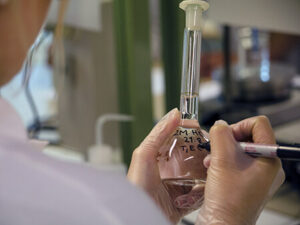What Kinds of Safety Testing Are Businesses Required to Do Before Selling a Product?
When consumers buy and use a product, they assume that the product that have been to them sold is safe. However, there are stories in the news all the time about products that are endangering lives, harming consumers, or exposing people to dangerous hazards or toxins. Weren’t these products tested? Weren’t they subjected to a battery of tests and analysis before being approved for sale to the general public? What is the business’ responsibility for safety testing?
These thoughts and uncertainty are alarming for consumers since they are helpless victims. It is difficult to obtain important information about products, such as:
- Whether the product is made with harmful materials.
- Whether the product is capable of harming people.
- What risks the product poses to users.
- Whether the product poses environmental harm.
- If the product will off-gas or decompose over time, exposing users to toxins.
There are legal protections for consumers who are injured by defective or dangerous products. These legal protections are governed by product liability law.
What Protections Are There?
In addition to product liability law, products are subjected to government approval, certification and testing, depending on the type of product. For instance:
- Pharmaceuticals, medical devices, cosmetics, and foods must all be approved by the U.S. Food and Drug Administration before being sold to the public.
- The children’s products industry is also highly regulated, and toys for children ages twelve and under must go through significant testing to ensure the product is safe for children.
- The U.S. Consumer Product Safety Commission oversees certification and testing for general use products sold in the United States to ensure a general level of safety of the product.
When consumers are hurt by dangerous or defective products, their resulting personal injury claims are governed by product liability law. Manufacturers, wholesalers, suppliers and retailers can be held accountable for the personal injuries caused by products when they negligently sell defective or dangerous products to unsuspecting consumers.
A product could be considered defective in a number of ways, including having a design flaw that makes the product dangerous or causes injuries, the product could be manufactured incorrectly, or the product could be mislabeled, which leads to improper and unsafe use of the product.
Examples of Negligence In Product Testing
When a defective or dangerous product makes its way to store shelves for purchase, it is usually the result of negligence on the part of the manufacturers. Negligence in product testing can include:
- Failing to adequately test the product, i.e., not testing the product under normal use conditions, not testing it for long enough, not testing a large enough quantity of the product, etc.
- Failing to inspect the product during manufacture, assembly, packing, etc.
- Failing to anticipate reasonable uses for the product and then testing the product for normal conditions for those reasonable other uses.
- Failing to analyze product design plans early in the development of the product.
- Failing to use reasonable standards when evaluating the safety of the product.
- Falsifying testing data so that the product appears safer than it is.
- Hiding or concealing data that indicates that the product is unsafe for market.
- Failing to conduct testing at all.
- Failing to perform long-term testing on the product.
Should Consumers Be Concerned?
Generally speaking, most businesses that put new products on the market tend to do adequate safety testing of their products before offering the products for sale. They generally go through the appropriate legal or regulatory channels to have their products approved for sale to the consuming public. But that does not mean that a few bad products, or a bad design, don’t make it through. A product from even the most trusted business could end up being defective or unsafe.
Contact our Denver Personal Injury Attorneys at Zaner Law Personal Injury Lawyers at (720) 613 9706
For more information, please contact the Denver personal injury lawyers at Zaner Law Personal Injury Lawyers to schedule a free initial consultation with a personal injury lawyer.
We are located in Denver, CO, and proudly serve all of Denver County.
Zaner Law Personal Injury Lawyers 1610 Wynkoop Street, Suite 120. Denver, CO 80202 (720) 613 9706
Find us with our Geocoordinates: 39.75208145814397, -105.00017355026108




